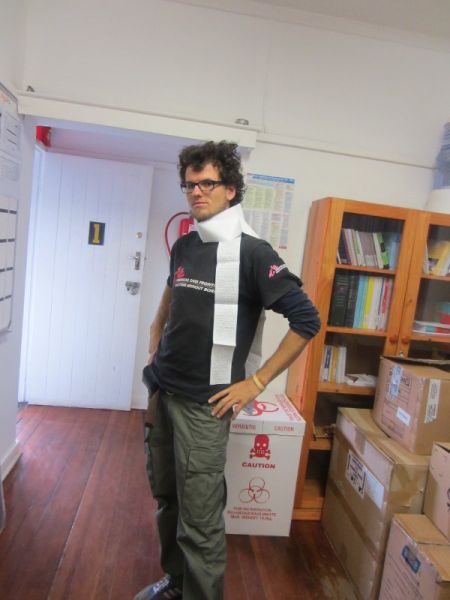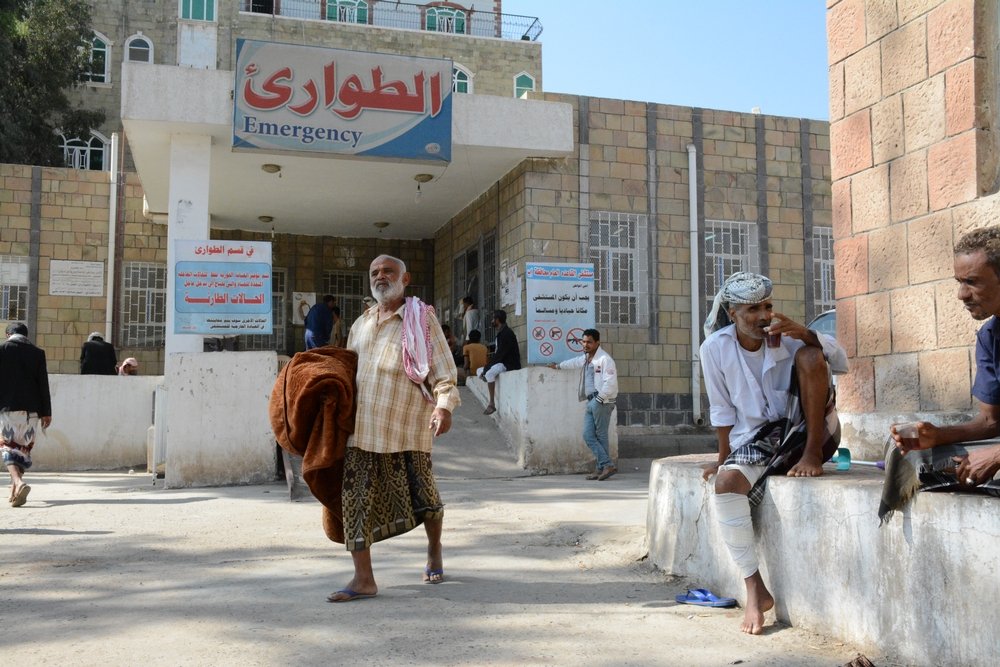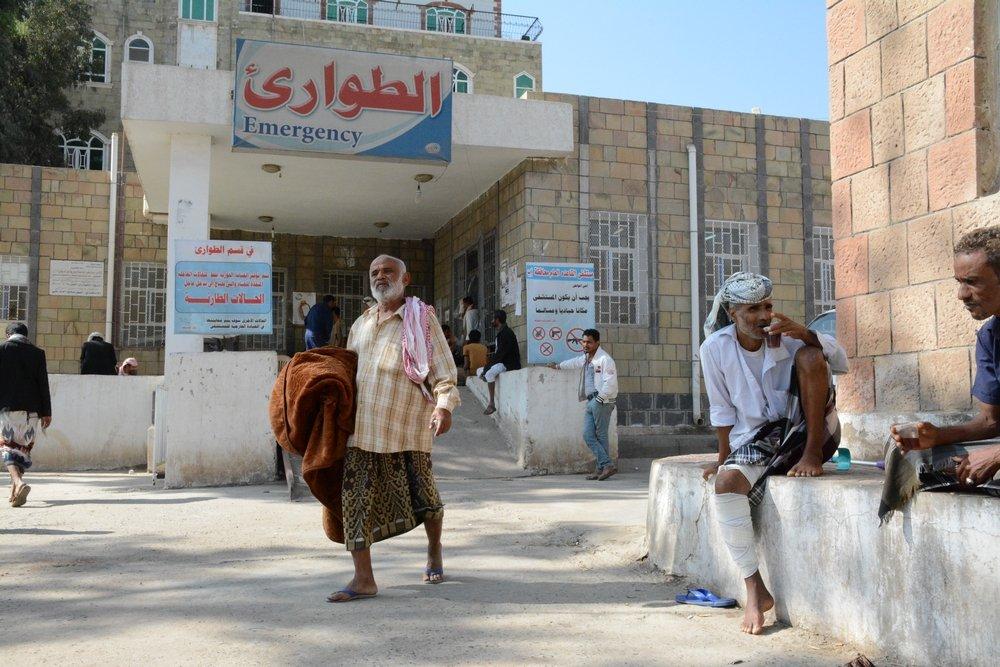An archaeologist-turned-logistics manager worked at two healthcare projects near the frontlines of Yemen’s war.
For 25 years, Doctors Without Borders (MSF) has been part of Andrius Slavuckis’ life.
In the 1990s, his father – a doctor anaesthetist – volunteered with MSF. When he was offered a year-long field assignment to Azerbaijan in 1996, he took Andrius and the rest of the family with him.
The years passed; Andrius studied archaeology in his home country Lithuania, then lived abroad in France and Switzerland. MSF stayed at the back of his mind until volunteering at MSF’s Geneva office in 2007 once again got him interested in the organisation’s work in the field.
After completing an intense, practical course in field logistics in Bioforce (France), he headed out on his first assignment to Haiti in 2011 as part of MSF’s response to a cholera outbreak.

Since then the 33-year-old has worked for MSF in Lesotho, South Sudan, Sierra Leone, Libya, the Central African Republic, Serbia, South Africa and most recently on a two-month assignment in Yemen. It was in South Africa that he met his wife, Indira, a medical doctor and MSF fieldworker. The two then worked together in Juba, South Sudan in 2014.
“I’m too much inside MSF, it’s like there is no way out,” he laughs.
“But what I like a lot is how fast we can do things, how quickly we can achieve results and help someone out. It’s just amazing,” he says. “Having all this logistics capacity and being able to move really fast on the ground helps us achieve things. I’m very proud of that.
In Yemen, he worked mainly on training and support of local colleagues in two projects – Al-Thawra Hospital and the rural hospital in Thi As Sufal district – where MSF supports public hospitals of the Health Ministry.
“These projects were near Taiz, near the frontline. On a clear day, we would hear the planes flying overhead. We got some casualties from the frontline – mostly Houthis and civilians from one side of the conflict, while our other projects saw casualties from the other side. MSF is neutral and tries to work with both sides.”

‘Water is scarcer and scarcer’
The towns where Andrius was based have lush, green fields and traditionally good agriculture. He calls the region the “bread basket of Yemen” providing much of the country’s fresh produce. But since the war, there are issues with access to water. “It’s getting drier and drier, water is scarcer and scarcer. People are just struggling to access good drinkable water.”
To tackle some water-related concerns, he initiated a water treatment project at Thi As Sufal district hospital – that used some 15,000 litres of water a day, stored in tanks that were constantly refilled by a water truck.
“On occasion, there are some cholera cases in Yemen. We didn’t want that to happen in our hospital, so we initiated this plan. I trained local logisticians and guards on chlorination, and after some fine tuning, we started a daily system of preparing chlorine solutions and using a dosing pump to inject it into the water tank at a certain speed. This ensures all the water is treated. We then set it up so it flowed into the tanks and taps and into the wards.”
“We got lots of team member to participate and learn something new. It became a nice little project that they did every day. That was the biggest step in improving conditions for patients and their health.”
As someone with a background in archaeology, Andrius says he initially did not see himself as a logistician. “When I started, I wasn’t very technical – with engines and electricity and things. But I realised I didn’t need to know how to install an electrical system or fix a generator; I just needed to have a general idea and find the right people who can do it. So the main lesson I’ve learnt about myself from working in the field is that I’m able to do this job and provide support where needed.”
“Just being a part of something big like MSF, an organisation doing a lot of amazing work, is what keeps me going to the field,’ he says. “There are huge needs for us to be in Yemen. Every project counts and every project is serious, so the work is very useful and necessary.”
Find out more about MSF's activities in Yemen.
